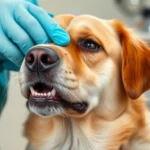
Introduction
Miniature dachshunds are a beloved breed known for their playful personalities and distinctive long bodies. However, like many breeds, they are prone to specific health problems that owners should be aware of. Understanding the common health concerns associated with miniature dachshunds can significantly improve their quality of life. This article aims to provide dog owners with valuable insights into the most prevalent miniature dachshund health problems, their prevention, and care strategies.
Overview of Miniature Dachshund Breed
General Characteristics
Miniature dachshunds typically weigh between 8 to 11 pounds and stand about 5 to 6 inches tall at the shoulder. Their elongated bodies and short legs are iconic traits that make them instantly recognizable. They come in three coat types: smooth, long-haired, and wire-haired, each requiring different grooming needs.
Temperament-wise, miniature dachshunds are curious, bold, and sometimes stubborn. They are known for being affectionate with their families while also displaying a keen sense of independence. This combination makes them playful companions but can also lead to behavioral challenges if not properly managed.
Lifespan
The average lifespan of a miniature dachshund ranges from 12 to 16 years. Factors influencing longevity include genetics, diet, exercise, and overall health care. Regular veterinary check-ups and a proactive approach to their health can enhance their lifespan and ensure they lead a healthy, happy life.
Common Health Problems in Miniature Dachshunds
Intervertebral Disc Disease (IVDD)
Intervertebral Disc Disease (IVDD) is one of the most significant health concerns for miniature dachshunds. This condition occurs when the discs that act as cushions between the vertebrae in a dog’s spine degenerate or rupture, leading to pain, nerve damage, or paralysis.
Symptoms to watch for include:
- Sudden onset of back pain
- Reluctance to move or play
- Weakness or wobbliness in the hind legs
- In severe cases, loss of bladder control
Treatment options range from conservative management, such as strict rest and pain medication, to surgical interventions for more severe cases. Prevention strategies include maintaining a healthy weight and avoiding high-impact activities that could strain their backs.
Obesity
Obesity is another prevalent issue among miniature dachshunds, often exacerbated by their love for food and tendency to lead a sedentary lifestyle. Excess weight can lead to severe health complications, including diabetes, heart disease, and joint problems.
Signs of obesity include:
- Difficulty in feeling the ribs
- Excess fat around the waist
- Reduced energy levels
To maintain a healthy weight, dog owners should focus on:
- Providing a balanced, age-appropriate diet
- Monitoring portion sizes
- Incorporating regular exercise into their daily routine
Dental Issues
Dental health is critical for miniature dachshunds, who are prone to various dental problems, including periodontal disease and tooth decay. These conditions can lead to pain and tooth loss if not addressed.
Importance of dental care cannot be overstated. Regular brushing and professional dental cleanings can help prevent these issues. Owners should also be aware of the signs of dental problems, such as bad breath, swollen gums, or difficulty eating.
Skin Problems
Skin conditions are common in miniature dachshunds, often stemming from allergies or infections. Common skin issues include dermatitis, hot spots, and flea allergies.
Symptoms to monitor include:
- Red or inflamed skin
- Excessive scratching or biting at the skin
- Hair loss or flaky skin
Treatment options may involve medicated shampoos, allergy testing, or dietary changes. Regular grooming can also aid in preventing skin problems by keeping the coat clean and free of parasites.
Eye Disorders
Miniature dachshunds are susceptible to several eye disorders, including cataracts and glaucoma. These conditions can lead to significant vision impairment if not treated promptly.
Signs and symptoms to watch for include:
- Cloudy appearance in the eyes
- Excessive tearing or discharge
- Squinting or rubbing at the eyes
Treatment and management strategies may involve medications, surgical options, or regular veterinary check-ups to monitor eye health.
Preventative Care
Regular Veterinary Checkups
Routine veterinary check-ups are essential for maintaining the health of miniature dachshunds. These visits allow for early detection and management of potential health problems.
Recommended vaccination schedules should be followed to protect against common canine diseases. Regular screenings for heartworms, intestinal parasites, and other health issues are also critical.
Nutrition and Diet
A balanced diet plays a significant role in preventing many health problems in miniature dachshunds. Owners should focus on high-quality dog food that meets their nutritional needs.
Best dietary practices include:
- Consulting with a veterinarian to determine the appropriate diet
- Avoiding table scraps and unhealthy treats
- Monitoring calorie intake to prevent obesity
Exercise Requirements
Miniature dachshunds require regular exercise to maintain a healthy weight and overall well-being. Daily walks, play sessions, and mental stimulation are essential components of their exercise routine.
Safe activities for miniature dachshunds include:
- Short walks on a leash
- Interactive toys that promote physical and mental engagement
- Supervised playtime with other dogs
Grooming and Hygiene
Grooming is vital for miniature dachshunds, not only for their appearance but also for their skin and overall health. Depending on the coat type, grooming needs may vary.
Tips for maintaining coat and skin health include:
- Regular brushing to remove loose fur and prevent matting
- Bathing only as needed to avoid stripping natural oils
- Checking ears and nails regularly to prevent infections and overgrowth
Recognizing Signs of Distress
Behavioral Changes
Being attentive to your miniature dachshund’s behavior is crucial for early detection of health issues. Changes to look for include:
- Increased aggression or withdrawal
- Changes in eating or drinking habits
- Excessive barking or whining
Understanding what constitutes normal behavior for your dog will make it easier to spot any concerning changes.
Physical Symptoms
Common physical signs of health issues in miniature dachshunds include:
- Vomiting or diarrhea
- Lethargy or lack of interest in usual activities
- Visible signs of pain, such as reluctance to move or vocalization
If any of these symptoms occur, it’s essential to seek veterinary attention promptly.
Treatment Options
Home Remedies
For minor health issues, some safe home care practices can provide relief. This includes:
- Utilizing natural supplements, such as fish oil for joint health
- Providing a comfortable, warm space for rest and recovery
- Implementing stress-reducing activities like gentle massages
Medications and Veterinary Treatments
In more severe cases, medications may be necessary. Common medications for miniature dachshunds include:
- Anti-inflammatories for pain management
- Antibiotics for infections
- Supplements for joint health
Pros and cons of surgical options should be discussed with a veterinarian, especially in cases like IVDD where surgery may be required.
Rehabilitation and Physical Therapy
Rehabilitation and physical therapy can be beneficial for miniature dachshunds recovering from injuries or surgeries. These therapies can improve mobility and quality of life, especially in dogs with IVDD.
Available therapies may include:
- Hydrotherapy for low-impact exercise
- Manual therapy techniques to improve mobility
- Targeted exercises to strengthen muscles
Frequently Asked Questions (FAQs)
What are common concerns from miniature dachshund owners?
Many owners are concerned about the breed’s susceptibility to back problems and obesity. Understanding these risks can help owners take proactive steps in their dachshund’s care.
How can I communicate effectively with my veterinarian?
Be prepared with specific questions about your dog’s health and behavior. Keeping a journal of any changes can help the veterinarian provide the best advice tailored to your miniature dachshund’s needs.
Conclusion
Awareness of miniature dachshund health problems is essential for any owner. Recognizing potential issues early and taking proactive measures can significantly enhance your dog’s quality of life. Regular check-ups, a balanced diet, and a healthy lifestyle are crucial components of your miniature dachshund’s care.
By staying informed and engaged in your dachshund’s health, you can ensure they lead a happy, healthy life for years to come.









